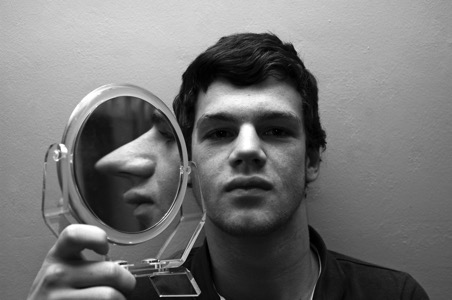Eliminating fear of heights with hypnosis

Jim from Windermere in Cumbria approached me very recently for his fear of heights. Like so many people with phobias, Jim had an irrational understanding of his problem. Having not been born with this problem, Jim had spent a good part of his life with no issue whatsoever. In fact part of his life had been spent as a fireman and so heights were a natural part of his reality and his experience. Unfortunately this was all to end once he encountered a one off experience which locked itself in as a limiting belief around heights. The detail of the trauma is not as significant as the new reality it created. From that point onwards Jim was able to activate his reticula memory so that every height was generalised as a problem. Through the reframing of his experience with Hypnotherapy Jim was able to not only neutralise and own the feeling rather than run away from it but he was also able to neutralise the spontaneous release of adrenaline associated with the phobia. You can listen to, and watch Jim talk about his experience with hypnotherapy when dealing with his fear of heights. In the interview you can find out about how Jim overcame his fear of heights once and for all and watch him as he demonstrates his new-found confidence.
Some recent photos sent by Jim demonstrating his new found confidence. These photos were taken from the top of Barnard castle. Thank you to Jim for agreeing to share his experience.

If you are struggling with a particular phobia and would like to know how Hypnotherapy may be able to help then click on the following link for more information.
Mindfulness the new anti-depressant

So what exactly is mindfulness? One my client’s from Kendal recently asked me what was the ‘big deal’ about mindfulness? There's a great deal of buzz and interest at the moment about this word, especially in education and conventional medicine. So here it is - In its simplest terms, mindfulness is about being present in the moment while you calmly reflect on your feelings and thoughts and bodily sensations as you experience them in the here and now without forcing them or resisting them in any way. When you can be fully present, without resisting or trying to shy away from your feelings and emotions, then you start to create a space around you which allows you to take hold more effectively of the situations you face and the choices you make. Life is full of challenges, but when we are mindful we are better able to work with our minds and bodies so that we can deal with our life’s anxieties and stresses far more effectively.
Trying to be mindful on a day-to-day basis does require a certain amount of learning and patience, but once you learn to be mindful the new perspective which you can get on your life can be fundamentally life changing. The reason mindfulness is being accepted more and more within conventional medicine is because it is seen as one of the many psychological tools that can be equally if not more effective than embarking on a course of medication as prescribed by most general practitioners. Many of my referrals from GPs are directly related to mindfulness training.
Mindfulness is not new either. With its origins in Buddhism, it has been around for thousands of years, only recently however being accepted by Western health care. The reason I mention it here, is because hypnotherapy, and all the techniques which are utilised here at the Cumbria Hypnosis Clinic have their roots in mindfulness practices. For over a decade now, the mindfulness therapy which I have been using has helped hundreds of people to deal with their everyday stresses, panic attacks, and anxiety disorders, as well as dealing with more general negative behaviours like smoking and gambling.
“Once I learned the self hypnosis techniques (mindfulness techniques) shown to me by David, I have been able to sleep better, I have a much better appetite, and things just don’t get to me as easily” Paul Carter (Penrith, Cumbria)
The great news is that anyone can learn how to become skilful in mindfulness, children, teenagers and adults alike can benefit from this simple yet life changing practice. Although there are many different ways you can develop your ability to be more mindful, the most effective way to become more knowledgeable is by being trained on a one-to-one basis with a trained mindfulness teacher. My experience with mindfulness extends over a period of 10 years. Not only do I use mindfulness within my hypnotherapy clinic with all my clients on a daily basis, but I have also taught children and other practitioners how to use the most cutting edge mindfulness strategies to help overcome any limiting belief or behaviour.
If you would like an opportunity to discuss your mindfulness goals with me then you can contact me directly by clicking on this link.
Have a peaceful day
David Faratian
5 ways to detect if someone is lying

One of the many skills of human survival has been a person’s ability to tell a lie. We often lie to protect ourselves or others from being emotionally injured in some way. Of course lying has also got a darker side where deception is the main goal, whether to commit and cover up inappropriate actions or else to deceive and manipulate. However, there is one thing that will always be true and that is the fact that most people cannot help but give away their lie through the 80% of non verbal communication, which we as human beings are all hard wired for. You see you may be able to deceive through your words but there are always trails of deception communicated through other unconscious cues.
In a study of non-verbal cues that are signs of lying, researchers say rubbing, touching, or blowing the nose are all ways to tell if someone’s lying. When it comes to detecting a lie, scientists believe, stress causes an increase of blood to the extremities which causes tingling in the nose. This explains why people tend to rub their noses when they are feeling uncomfortable in some way. Of course other areas of our bodies are equally able to betray a lie, especially the eyes. Have you ever watched someones eyes? Sometimes people don’t realise how the direction their eyes move when done subconsciously can tell a great deal about whether what they are saying is created or remembered. You can learn more by watching this short video https://www.youtube.com/watch?v=0dNg5gi_-dY
Other common signs that someone could be lying to you:
- Tripping over words and using ‘um’ or ‘uh’ as filler words
- Long pauses before answering
- Evading the question
- Using ‘well’ at the beginning of a sentence
- Use of the words ‘no,’ ‘do not,’ or ‘cannot’
- Higher pitch/tone of voice
- Keeping eye contact longer than usual
- Folding arms
- Touching throat (for women this is a sign of lying)
- Holding something in front of them, like a piece of paper
- Clasping hands together
- Positioning feet towards the exit
- Hand gestures don’t match what is being said
- Not using any hand gestures
- Blinking often
- Moving the fingers
At the Cumbria Hypnosis Clinic we use some of the eye accessing cues you have just read about to deal with emotional blocks, anxieties and fears. If you would like to find out how an unconscious movement of the eyes which can be used to detect a lie can be equally effective at dealing with emotional problems then please feel free to Contact us following the link on this page..


